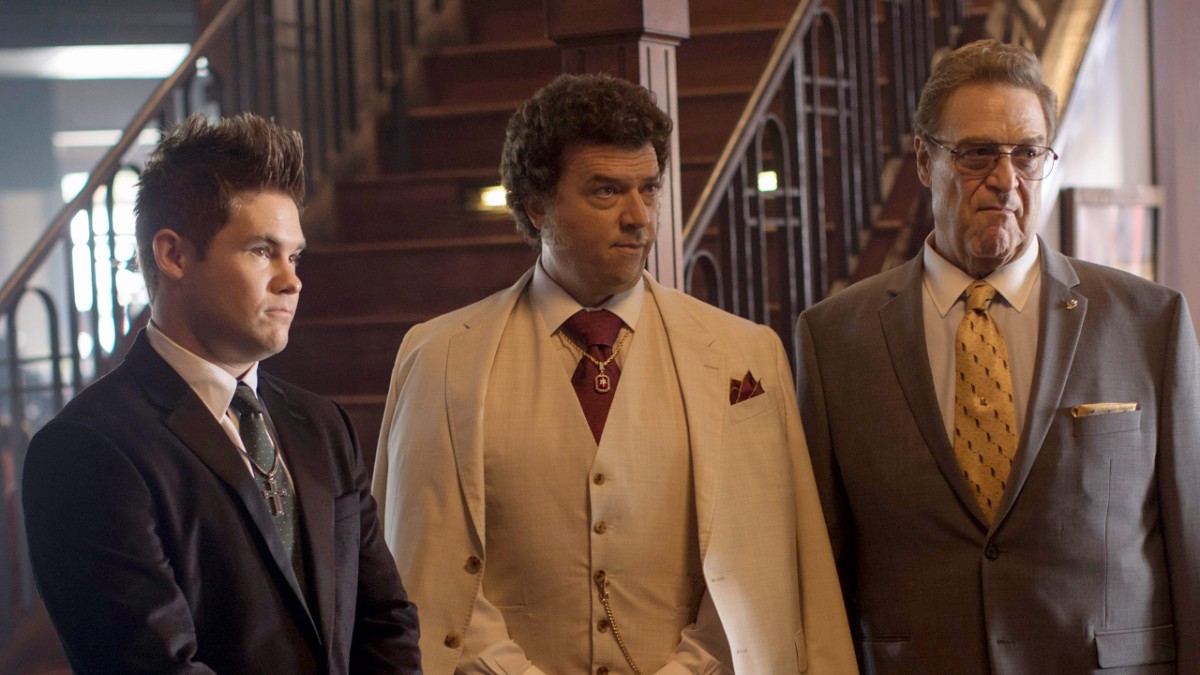
The other night, I was flipping through Netflix, Hulu, and HBO with my friends, as we searched for a good TV show to watch. After much debate and discussion, we finally settled on watching a relatively new show that premiered over the summer, “The Righteous Gemstones.” And, I have to admit, I was skeptical. Sometimes, it takes me a while to become invested in a show that’s not reality television, as embarrassing as that sounds. I mean, where’s the drama? I love to watch TV shows where drama happens immediately, like it does on the “Real Housewives” series. Sometimes, in fictional TV shows it takes a while for that to unfold and, more often than not, I end up going back to The Kardashians. However, much to my surprise, “The Righteous Gemstones” roped me in by serving up that kind of excitement.
Set in South Carolina, the plot centers around a family of famous televangelists and megachurch pastors. The Gemstones’ prominence and popularity is large and extensive, with people fawning over the sight of them in restaurants, shops, and everywhere in between. The patriarch of the family is recently widowed Eli Gemstone (John Goodman), who founded their evangelist empire. Following behind Eli are his children Jesse (Danny McBride), Judy (Edi Patterson), and Kelvin (Adam DeVine).
The children live lavish lifestyles with their father’s wealth, help to lead services at their glamorous megachurch, and travel across the world to perform missions. Jesse is the first-born child and is definitely Eli’s favorite. Kelvin, and especially Judy, live in Jesse’s shadow, which creates a complex sibling dynamic. Another tension-adding factor is that Jesse is the only one who has a wife and children, while Kelvin is single, and Judy has a boyfriend that nobody can stand. We see these traditional familial expectations following the characters in their everyday lives, and often used against them.
In the first episode, the family drama begins to ensue almost automatically as viewers learn that there’s a video record of Jesse doing something terribly sinful, something that would end the Gemstone family’s entire career and reputation. Throughout this saga, the siblings have to work together to save their family, without having Eli find out. This plot is captivating, and the degree to which viewers are invested in this family in just the first few minutes is both astounding and impressive.
In part, what makes “The Righteous Gemstones” such an intriguing show is the relatability of their familial dynamics. At some point in their lives, everyone has gone through some sort of family-related issues, whether that be a fight, or even a death. “The Righteous Gemstones” highlights the effects that these events have, and their complicated results.
Watching the Gemstone family can make viewers feel less alone in their own relationships with their family, which I think is a really special aspect of the show. The characters assure us that these types of dynamics are normal, and even natural.
However, the aspect that really drew me into the show and made me want to keep watching was the fact that it documented a world that I knew nothing about. As someone whose only experience of televangelism is accidentally stumbling upon a Christian radio channel in the car, it was very interesting to see what it really entailed. It was fascinating to see what goes on behind the scenes and how much work goes into the process of evangelizing.
They also use humor to communicate this, which it makes it even more engaging. I was struck by how their lives were so different from my own and it made me want to learn more. Though the world of the Gemstones seems distant, it’s not isolating, which is why they are able to attract viewers who may know nothing about the subject or culture of televangelism.
However, my one qualm with “The Righteous Gemstones” was how they treat the one female sibling, Judy. Oftentimes, Jesse and Kelvin are quite sexist towards her, almost treating her as if she doesn’t exist. They refuse to take her seriously, and to be honest, it can be really bothersome and borderline offensive.
And there are times when the show seems a little bit too dramatic or unbelievable, making me roll my eyes. Some of their jokes missed the mark, especially during a family lunch where they end up throwing food all over each other. Some of their actions were too unrealistic, like the writers were trying to make it almost too funny or over-the-top.
Qualms aside, overall, I think I’m obsessed with “The Righteous Gemstones.” Between its extremely interesting plotline, lively characters, and smart comedy, it makes for refreshing TV that I haven’t seen in a very long time. Even if you’re feeling skeptical like I was, I think that “The Righteous Gemstones” will surprise you. And, dare I say, it may just become your new favorite show.
Jane Herz can be reached at jherz@wesleyan.edu.


Leave a Reply